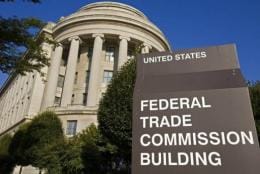FTC eyes the potential reinvention of journalism


National Public Radio receives over $400 million per year from U.S. taxpayers. While this sounds like a lot, a FTC “staff discussion draft,” entitled “Potential Policy Recommendations to Support the Reinvention of Journalism” states that, through various subsidies, such as “postal subsidies; journalist tax credits; News AmeriCorps; student media; public media; and especially Citizenship News Vouchers,” the taxpayers' bill “could run as high as $35 billion annually” in the near future.
Glenn Beck talked about it on his radio show Tuesday (6/1), and Fox News has been patting itself on the back ever since. Admittedly, it is true what they say; i.e. few networks are addressing the subject, although the project is one year in the making (draft just released).
A few days later, Dan Gainorr wrote a very critical piece discussing the new FTC release. After reminding us of our rights (“Congress shall make no law… prohibiting the free exercise thereof; or abridging the freedom of speech, or of the press”), he states that “hose freedoms don’t matter to the left. And many journalists, too. They’re desperate for funding and for a career future.” His generalization of the left is a bit cold, and hardly accurate. Unfortunately, the same cannot be said for his critique of journalists.
The FTC draft does offer a serious disclaimer, however, stating: “This draft does not represent final conclusions or recommendations by the Commission or FTC staff; it is solely for purposes of discussion.” Still, attention paid to the matter should not be discouraged.
To be fair, the draft isn’t all doom and gloom. For instance, one suggestion has an element of direct democracy. “Citizenship news vouchers would allow every American tax payer to allocate some amount of government funds to the non-profit media organization of their choice.”
Another suggestion would overturn a 60-year old law that prohibits content developed for international purposes to be broadcasted domestically, despite the fact that almost “$700 million of taxpayers’ money is spent on content generated for use by Voice of America and Radio Free Europe/Radio Liberty for international dissemination.”
Then again, the way they plan to pay for these services, correctly pointed out by Gainorr, is tax, tax, and more tax. Here's a sample: 5% tax on consumer electronics, spectrum auction tax (on auction sales for commercial communication spectrum), a 2% advertising tax, and a 3% ISP-cell phone tax.
On the international front, investigative journalist Greg Palast has been professionally “exiled” from the U.S. for writing honestly on controversial topics. He’s noted for covering (as a fraud investigator) the first BP oil spill (erroneously referred to as the Exxon Valdez crisis, in 1989). He also investigated in depth the 2000 and 2004 “stolen” elections, hurricane Katrina, and several other significant events.
Why is this pertinent?
Because today, he has a number of fascinating documentaries that have been shown in the US only after the BBC provided him an outlet. The BBC is the largest broadcasting organization in the world, and is publically funded by UK households. Not even Thatcher could put a stop to that (although she did cut funding).
As with national healthcare, the waters are muddy on this subject. The pros may sound good, but the cons could be devastating. If governments use their powers to censor the news— in any way— we may find ourselves on the proverbial “slippery slope” to a totalitarian state seen only in dystopian novels.



